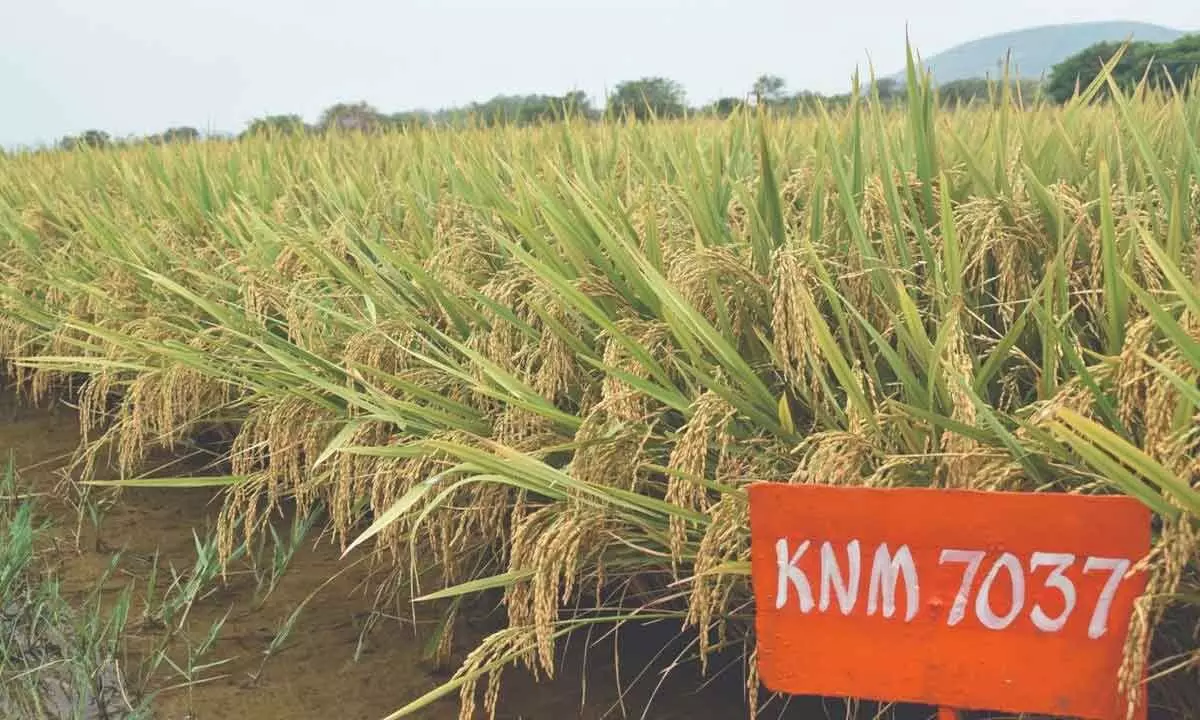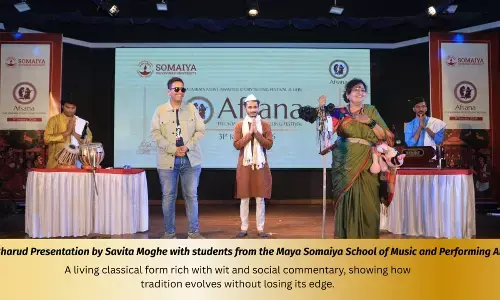PJTSAU releases high-yielding crop varieties

Sustainable and profitable rice cultivation in Telangana requires the option of early maturing varieties to facilitate timely planting, harvesting and crop rotation
Hyderabad: Professor Jayashankar Telangana State Agricultural University (PJTSAU) has prioritised agricultural research based on location-specific constraints and needs of the farming community. The major aim of research at the university is to evolve cost-effective farm technologies through a multidisciplinary approach for food and nutritional security at the household level, farm profitability, and sustainable production systems, leading to livelihood improvement and enhancing farmers' income.
Since inception in 2014, the university has released 61 high-yielding crop varieties both at national and state levels through CVRC and SVRC respectively.
Sustainable and profitable rice cultivation in Telangana requires the option of early¬ maturing varieties to facilitate timely planting, harvesting and crop rotation. Mitigating biotic stresses such as blast, brown plant hoppers, and gall midge demands effective strategies with an emphasis on cultivating resistant varieties. To effectively capitalise on the upward trend in rice exports from the state, the development of long slender/medium slender grain varieties tailored to consumer preferences and market demand becomes paramount.
Varietal research focused on these priorities led to the release of two nationally recognized rice varieties through CVRC. Telangana Rice 7037 offers long-slender grain, excellent cooking quality, early maturity and high-head rice recovery (62.3%). Telangana Rice 1289 is resistant to plant hoppers, blast and sheath rot and is recommended for cultivation in Chhattisgarh, Gujarat, and Maharashtra. The two rice varieties released to cater to the needs of Telangana state are Rajendranagar Vari28361, known for its long slender grains, and Warangal Vari 1119, identified for its resistance to multiple biotypes of gall midge, which is a major problem in the Central and Northern Telangana districts. Maize, the third most crucial crop in the state, faces post-flowering stalk rot issues, particularly with high-density planting. To combat this, the high-yielding maize hybrid DHM 206 was developed and released through CVRC. OHM 206 exhibits resistance to post¬ flowering stalk rot and is ideal for maize-growing states in North India.
In rabi sorghum cultivation, farmers have long favoured 'maldandi 'roti quality varieties, which are low-yielders.
SVT55, a sorghum variety developed at ARS, Tandur, stands out with its excellent roti quality traits alongside high yields (3500 kg/ha) and tolerance to various biotic and abiotic stresses.
Millets, now recognized as "Nutri-cereals," owe their status to their rich nutrient content. RARS, Palem contributed two notable cultivars: PBH1625, a biofortified pearl millet hybrid with high Feand Zn and a finger millet variety PRS-38, rich in Ca. These varieties were released by SVRC in Telangana.









